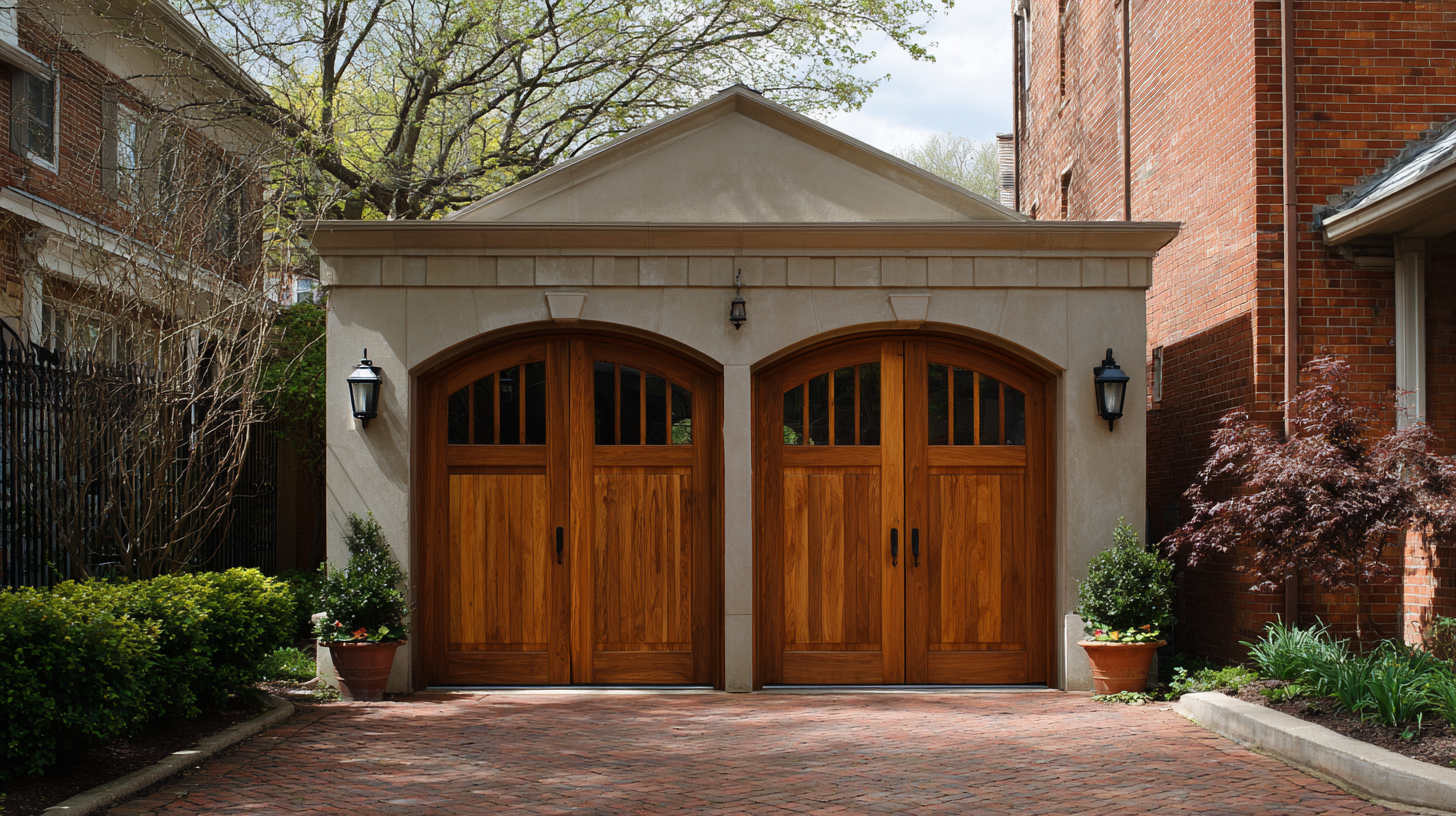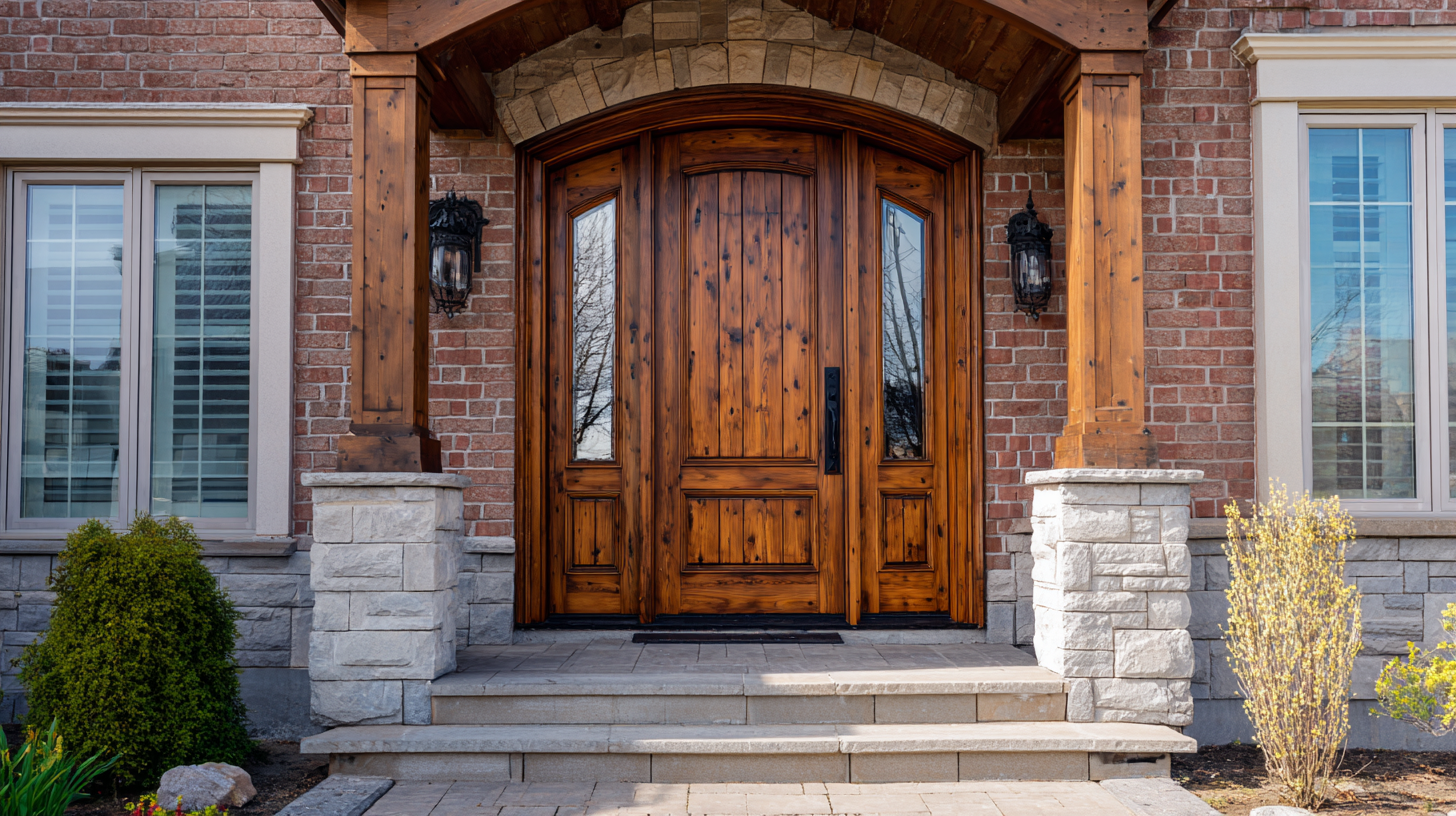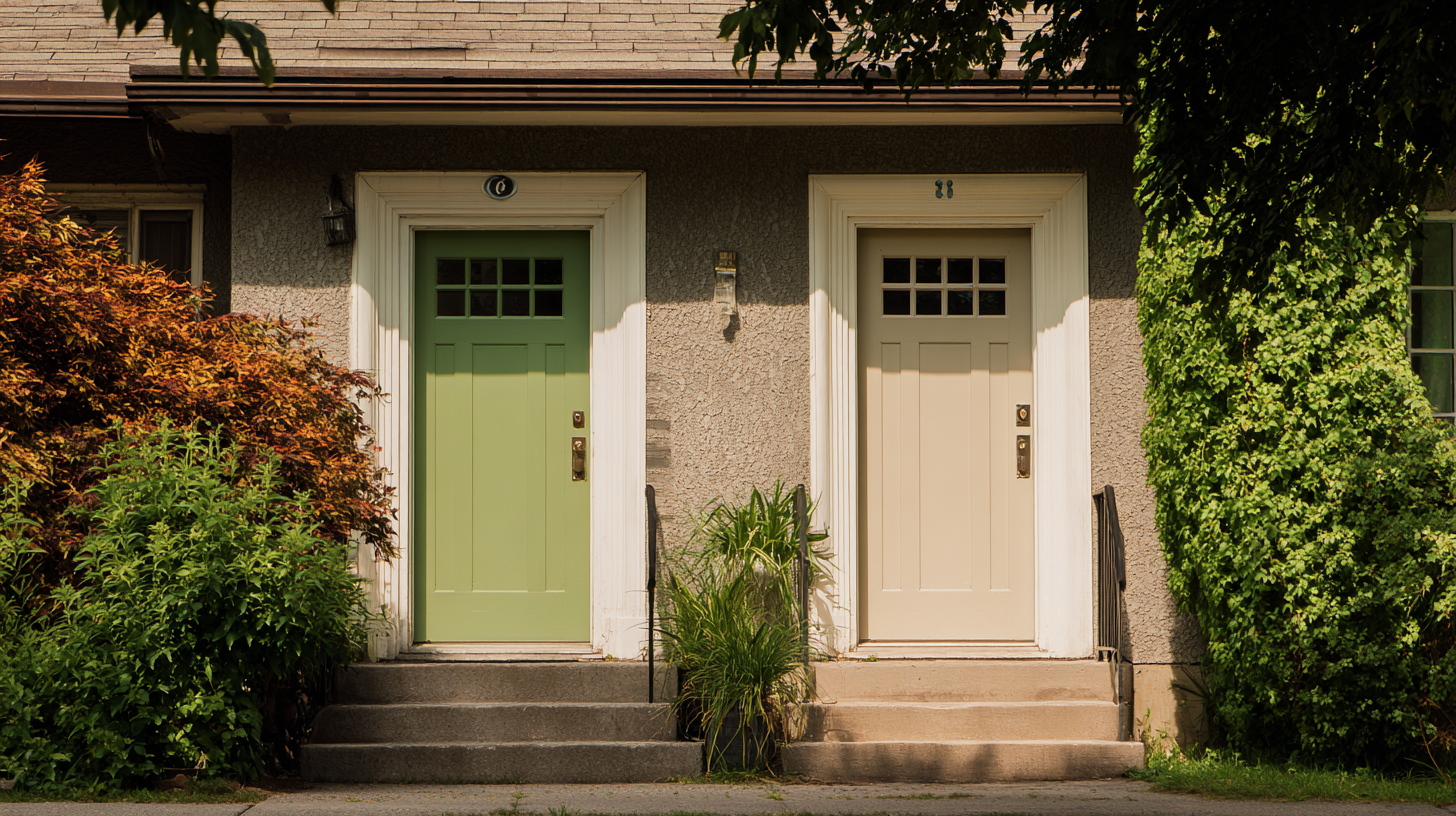 In the ever-evolving landscape of home design and construction, selecting the right materials for residential doors is paramount to ensuring longevity and security. According to the American Architectural Manufacturers Association, over 60% of homeowners consider durability a top priority when choosing entrance doors. Additionally, a report from the National Association of Home Builders indicates that the performance of residential doors significantly contributes to a home's overall energy efficiency, with well-constructed doors reducing heating and cooling costs by up to 25%. As homeowners increasingly seek to enhance their property’s value while also investing in energy-efficient solutions, understanding the variety of materials available—from fiberglass and steel to solid wood—becomes essential. This guide delves into the best materials for durable residential doors, equipping homeowners with the knowledge needed to make informed decisions that align with their priorities of aesthetics, security, and sustainability.
In the ever-evolving landscape of home design and construction, selecting the right materials for residential doors is paramount to ensuring longevity and security. According to the American Architectural Manufacturers Association, over 60% of homeowners consider durability a top priority when choosing entrance doors. Additionally, a report from the National Association of Home Builders indicates that the performance of residential doors significantly contributes to a home's overall energy efficiency, with well-constructed doors reducing heating and cooling costs by up to 25%. As homeowners increasingly seek to enhance their property’s value while also investing in energy-efficient solutions, understanding the variety of materials available—from fiberglass and steel to solid wood—becomes essential. This guide delves into the best materials for durable residential doors, equipping homeowners with the knowledge needed to make informed decisions that align with their priorities of aesthetics, security, and sustainability.
 When selecting materials for durable residential doors, several key characteristics should be considered to ensure longevity and performance. First and foremost, strength is crucial; materials like solid wood, fiberglass, and steel are known for their robust nature. Solid wood doors provide natural beauty and excellent insulation but require maintenance to prevent warping. In contrast, steel doors are resistant to dents and can withstand harsh weather conditions, making them ideal for security-focused homeowners.
When selecting materials for durable residential doors, several key characteristics should be considered to ensure longevity and performance. First and foremost, strength is crucial; materials like solid wood, fiberglass, and steel are known for their robust nature. Solid wood doors provide natural beauty and excellent insulation but require maintenance to prevent warping. In contrast, steel doors are resistant to dents and can withstand harsh weather conditions, making them ideal for security-focused homeowners.
Another characteristic to evaluate is resistance to environmental elements. Doors made from fiberglass not only mimic the aesthetic appeal of wood but are also impervious to moisture and insect damage. This makes them a practical choice for regions with extreme weather fluctuations. Additionally, insulation properties play a significant role in energy efficiency. A door with good insulating qualities, often seen in composite materials, can reduce energy consumption and provide better temperature control inside the home. Overall, understanding these characteristics will help homeowners make informed choices for durable door materials that align with their specific needs.
When considering durable residential doors, wood, fiberglass, and steel each offer unique benefits that cater to various homeowner preferences. Wood doors provide a classic aesthetic with natural beauty and warmth. Although they require regular maintenance to prevent warping and rotting, high-quality wooden doors can be very robust and offer excellent insulation properties.
In contrast, fiberglass doors are designed to mimic the look of wood while offering enhanced durability and energy efficiency. They resist denting and scratching better than wood and do not expand or contract with weather changes. This makes fiberglass a low-maintenance option, perfect for those seeking longevity without frequent upkeep.
Steel doors are known for their strength and security features. They provide superior protection against break-ins and harsh weather conditions. However, it’s essential to choose doors with a proper insulation core to prevent condensation on the surface.
**Tips:** When selecting a door, consider your local climate and the door's maintenance requirements. Investing in quality materials may save you money in the long run through reduced repair costs. Also, ensure proper installation to maximize the door's lifespan and performance.
| Material | Durability (Years) | Maintenance Level | Insulation (R-Value) | Cost ($) |
|---|---|---|---|---|
| Wood | 20-30 | Medium | 3-5 | 800-1500 |
| Fiberglass | 30-50 | Low | 5-7 | 1000-2000 |
| Steel | 20-30 | Low | 7-9 | 500-1500 |
When selecting materials for residential doors, understanding the impact of climate on their longevity is crucial. According to a report from the National Association of Home Builders (NAHB), extreme weather conditions, such as high humidity, intense heat, and harsh winters, significantly affect the durability of door materials. For instance, wood doors, while aesthetically pleasing, can warp and rot in humid environments, leading to costly repairs and replacements. In contrast, fiberglass doors have shown greater resilience against moisture and temperature fluctuations, boasting a lifespan that can extend beyond 30 years in various climates.
Moreover, metal doors, particularly those made from galvanized steel, offer excellent durability in both wet and dry climates. The American Society for Testing and Materials (ASTM) indicates that properly treated steel doors resist rusting and denting, making them a suitable option for regions experiencing high rainfall or heavy snowfall. With the increasing variability of climate conditions, homeowners must consider not only the initial cost of door materials but also their performance and longevity in specific environments. Selecting the right material upfront will ultimately result in lower maintenance costs and greater satisfaction over the years.
When selecting residential doors, cost-effectiveness and maintenance are crucial factors that homeowners should consider. Different materials offer varying initial costs and long-term value. For instance, fiberglass doors, while more expensive upfront than standard wooden doors, are known for their durability and low maintenance requirements. They resist warping, cracking, and denting, which minimizes repair costs over time. Additionally, their energy efficiency can lead to savings on heating and cooling bills, enhancing their cost-effectiveness in the long run.
On the other hand, wooden doors provide a classic aesthetic appeal but typically require more maintenance. Regular sealing and painting are necessary to protect against the elements, which can add to overall expenditures. Steel doors are another option to consider; they are often cost-effective and provide excellent durability. However, they may need occasional touch-ups to prevent rust and maintain their appearance, which factors into maintenance costs. Ultimately, homeowners should weigh the initial investment against the anticipated maintenance and longevity to determine which door material meets both their budgetary and practical needs.
 The evolution of residential door manufacturing has brought forth innovative technologies that enhance both durability and aesthetics. Manufacturers are now utilizing advanced materials such as fiberglass and composite wood, which offer superior resistance to the elements compared to traditional materials. These innovations not only improve longevity but also help in energy efficiency, as modern doors are often designed with insulation properties that keep homes warmer in winter and cooler in summer.
The evolution of residential door manufacturing has brought forth innovative technologies that enhance both durability and aesthetics. Manufacturers are now utilizing advanced materials such as fiberglass and composite wood, which offer superior resistance to the elements compared to traditional materials. These innovations not only improve longevity but also help in energy efficiency, as modern doors are often designed with insulation properties that keep homes warmer in winter and cooler in summer.
Tips: When selecting a durable residential door, consider options with reinforced frames and multi-point locking systems for added security. Additionally, look for energy-efficient models that carry the ENERGY STAR label to ensure you're making a wise investment in comfort and savings.
Moreover, the introduction of smart technology in door manufacturing is transforming how homeowners interact with their entryways. Smart locks and integrated security systems allow homeowners to control access remotely, providing peace of mind while enhancing convenience. As technology continues to advance, it’s important to stay informed about these developments to select doors that not only meet aesthetic preferences but also align with modern security needs.
Tips: Regular maintenance, such as checking seals and finishes, can extend the lifespan of your door. Also, consider smart systems that offer compatibility with existing home automation products for seamless integration.